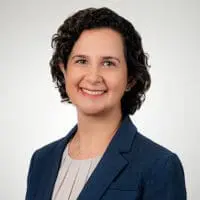Publication
Facebook v. Duguid – Opting for Narrow ATDS Definition, Supreme Court Issues Game-Changing TCPA Decision
By Gregory J. Marshall and Patricia Brum
Businesses using automated technologies to call and text consumers may breathe a collective sigh of relief today as the Supreme Court confirmed in the Facebook v. Duguid decision what defense lawyers have been arguing for years – equipment that is merely capable of storing and dialing telephone numbers is not an automatic telephone dialing system (“ATDS”) under the Telephone Consumer Protection Act (the “TCPA”). Rather, the equipment must also use “a random or sequential number generator.” That is the type of equipment that concerned Congress.
What is the TCPA?
Enacted in 1991, the TCPA imposed restrictions on abusive telemarketing practices. In particular, ATDS technology allowed companies to dial blocks of telephone numbers automatically, which could tie up the lines of emergency services and businesses alike. In response to this emerging technology, the TCPA made it unlawful to make certain calls using an ATDS, and created a private right of action allowing consumers to recover up to $1,500 per unlawful call, creating the potential for truly staggering liability in class actions.
Facebook’s login notification text
Fast forward 25 years. Like many businesses concerned with consumer data and privacy, Facebook has a security feature that automatically sends users texts when an attempt is made to access their accounts from unknown devices or browsers. Such technology has a lot of utility, serving the interests of consumers and businesses alike. Facebook sent such texts to Mr. Duguid, who did not have a Facebook account, and did not give Facebook consent to call or text him. This, Duguid argued, violated the TCPA.
What is an ATDS?
Under section 227 of the TCPA, an ATDS is equipment with the capacity “to store or produce telephone numbers to be called, using a random or sequential number generator,” and to dial those numbers. To be sure, Facebook’s equipment did store and text numbers, but it did not use a “random or sequential number generator.” On the question of whether equipment like Facebook’s met the ATDS definition, the circuits were split.
Closely parsing the text of section 227, the Supreme Court concluded that the clause “using a random or sequential number generator” modified both verbs that preceded it (“store” and “produce”). This interpretation aligns with the context of the TCPA, the Supreme Court said, which made it unlawful to call emergency telephone lines or multiple lines of the same business at the same time, for example. Expanding the definition to include any equipment that merely stores and dials telephone numbers (like modern cell phones) would “take a chainsaw to these nuanced problems.”
What does the Facebook decision mean for businesses?
Long plagued by TCPA class actions presenting truly mind-boggling statutory damages (often hundreds of millions of dollars), responsibly-acting businesses have much to celebrate with this decision. Going forward, using technologies like predictive dialers and automated text systems will not expose businesses to TCPA liability, provided those technologies do not have the capacity to store or produce numbers using a random or sequential number generator, as many do not.
Subject to restrictions imposed by other laws (like debt collection, for example), businesses may now use these automated technologies to call cell phones without consent, even for marketing purposes and cold call solicitations, provided that the numbers are not on the national Do-Not-Call registry, of course.
There remains many reasons to proceed with caution, however, as the TCPA still has plenty of bite. The TCPA covers more than just ATDS calls. The provisions covering pre-recorded and artificial voice calls remain, as do the TCPA’s limitations on calls to numbers on the national Do-Not-Call registry, the violations of which will likely continue to fodder class actions with crippling damages claims for years to come.
And just as before, businesses should consider taking great care in selecting and contracting with venders providing telemarketing services, or any services that involve calls or texts using automated means, if their equipment uses “a random or sequential number generator.” Careful contracting, record keeping, auditing, and indemnification remain key to limiting TCPA exposure before and after Facebook.
About Snell & Wilmer
Founded in 1938, Snell & Wilmer is a full-service business law firm with more than 500 attorneys practicing in 17 locations throughout the United States and in Mexico, including Phoenix and Tucson, Arizona; Los Angeles, Orange County, Palo Alto and San Diego, California; Denver, Colorado; Washington, D.C.; Boise, Idaho; Las Vegas and Reno-Tahoe, Nevada; Albuquerque, New Mexico; Portland, Oregon; Dallas, Texas; Salt Lake City, Utah; Seattle, Washington; and Los Cabos, Mexico. The firm represents clients ranging from large, publicly traded corporations to small businesses, individuals and entrepreneurs. For more information, visit swlaw.com.


